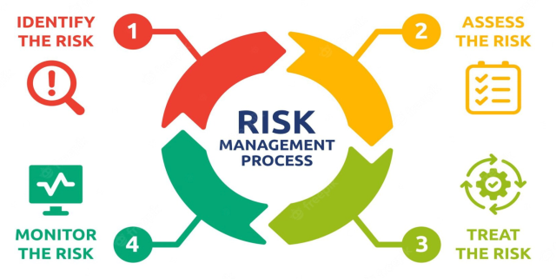
Let’s take a look at some fantastic approaches to locating qualified business analysts.

Title: Navigating Business Success: The Crucial Role of a Business Analyst

Introduction
In the ever-evolving world of business, where data and technology reign supreme, the role of a Business Analyst (BA) has never been more critical. These professionals are the architects of strategic decision-making, ensuring that an organization’s goals align with its processes and systems.
In this blog, we’ll take a deep dive into the multifaceted world of Business Analysts and explore why they are invaluable assets for modern enterprises.
Who is a Business Analyst?
A Business Analyst is a skilled professional who functions as a liaison between an organization’s business stakeholders and its IT teams. They are the driving force behind effective project management, process improvement, and data-driven decision-making. BAs possess a unique blend of analytical, technical, and communication skills, making them a cornerstone of business success.
The business world is dynamic and moves quickly. This indicates that the role of the business analyst (BA) has expanded to include more facets and complexity. But in order to succeed in this crucial position, BAs must be proficient in analysis methods that enable us to extract data and generate insights that reveal opportunities, shortcomings, and problems. These realizations can also assist us in developing solutions that add value for the companies we work for.

Find out what essential skills you’ll need to acquire throughout your career by reading on.

Data Modeling:
Building the Information Framework
Modern businesses rely heavily on data, and one method business analysts use to specify how data is organized, stored, and accessed is called data modeling.
BAs create visual representations of data entities (objects or concepts about which data can be stored), attributes, and relationships using tools such as Entity-Relationship Diagrams (ERDs). The assurance of data consistency, accuracy, and accessibility through data modeling supports the BA’s well-informed decision-making and efficient system development.
When fully developed, these data models can resemble super highways due to their complexity, but if they are clearly laid out, they can assist anyone examining them in quickly obtaining the information they require.
Stakeholder Analysis: Now Is the Time to Show Off Your “People Skills“
An essential method for comprehending the varied needs, expectations, concerns, and interests of the many stakeholders involved in a project is stakeholder analysis. By means of this procedure, project managers ascertain the important parties involved, their functions, requirements, and impact on project results. BAs guarantee project success and stakeholder satisfaction by encouraging clear communication and attending to stakeholder needs. Stakeholder collaboration on decision-making, scope creep prevention, and risk mitigation are all made possible by effective stakeholder analysis.
In my course Plan the Project, I go over a lot of topics related to stakeholder analysis, including how to identify, classify, and document stakeholders. I also go over the RACI Matrix, Power Interest Analysis, and other related topics.
A few different tools, such as stakeholder lists, maps, and personas, are useful when analyzing stakeholders in order to recognize and organize the information gathered during this process. Although it can get a little complicated, using your renowned “people skills” will help you win people over and maintain unity within the group.
Unraveling the Business Analyst Role
Business Analysts are the detectives of the corporate world, deciphering the intricate puzzle of data, technology, and business operations. Their role involves understanding an organization’s objectives, gathering and documenting requirements, analyzing data, mapping complex processes, designing solutions, assuring quality, managing change, and facilitating effective communication between stakeholders.

They are the linchpins that ensure projects stay on track, processes are optimized, and continuous improvements are made. In a fast-paced business environment, Business Analysts play a pivotal role in guiding organizations toward informed decisions and strategic success.
In addition to these responsibilities, BAs might venture into project management, ensuring projects are well-planned, progress is monitored, and issues are swiftly addressed. They are champions of continuous improvement, identifying opportunities to streamline processes, reduce costs, and enhance efficiency. In a world where the complexities of business and technology continue to evolve, Business Analysts remain the compass guiding organizations towards success.

Data Analysis: The Backbone of Business Strategy
Developing an infinite amount of data from a multitude of sources has never been simpler for organizations. They could retrieve an overwhelming amount of information. However, one important figure is present where raw data and strategic decision-making converge: the business analyst (BA). The importance of data in driving organizational change has made the role of business analysts (BAs) paramount in this modern era.
In this blog, we examine the vital role that business analysts play in the field of data analysis and how they convert data into insights that are actionable and form the basis of business strategy. You’re going to learn the magic behind it all if you’ve ever wondered why data is hailed as the “new gold” or why the position of a business analyst is so popular in the corporate world.
Growth of the Business Analyst Role
As entities saw the value that BAs brought, they began to apply their skills and expertise in other areas of the business, and BAs began to lead the way in other organizational improvement initiatives as well. And this continues on today.

We’re seeing Business Analysts take on more of a Product Ownership role and working more closely with product owners than ever before, we’re seeing an increase in BAs driving collaboration between stakeholders and in being the facilitator of that collaboration, and we’re continuing to see BAs move further out of the traditional ways of operating and alter their practices as they shift further into Agile contexts. One more recent movement we’re seeing in the role is BAs becoming deeply involved in business process improvement projects that make use of LEAN initiatives.
One Optimized Approach: BA and the Business Leader

In this article, we’ll explore different approaches to involving BAs in project initiation when using the Waterfall approach and discuss the best option I’ve found to be most effective for organizations and for the success of solutions.
The key to a successful project launch is for the business analyst and a business leader to collaborate closely as a dynamic team to develop a winning solution.
The business leader appropriately defines and honed that concept into a strong business case in collaboration with the BA (as a consultant).
A Project Manager (PM) joins the project after the business case is accepted, collaborating with the BA and the business leader. Like a master puzzle solver, the PM is in charge of posing pertinent questions and putting together the project charter. In an ideal scenario, the three experts work together to establish the project’s goals and see it through to completion.
Title: The Future of Business Analysis: Navigating the Digital Transformation
As we look to the future, it’s clear that business analysts will play a crucial role in navigating the complexities of the digital age. In this article, we’ll explore the future of business analysis and how it’s set to reshape the business world.
Embracing Automation and AI
The rise of automation and artificial intelligence (AI) is reshaping the business landscape. Business analysts are poised to leverage these technologies to streamline processes and enhance decision-making. In the future, they will need to be proficient in working with AI and automation tools to harness the power of data analytics and predictive modeling. This will enable them to provide more accurate and timely insights to guide strategic decisions.


Data-Centric Decision-Making
Data is the new gold, and business analysts will be at the forefront of mining and analyzing it for valuable insights. In the coming years, their role will pivot towards a more data-centric approach. Business analysts will work closely with data scientists and data engineers to collect, process, and analyze vast amounts of data to uncover hidden trends, customer preferences, and market opportunities.
Agile and Iterative Methodologies
As businesses strive for agility and responsiveness, business analysts will increasingly adopt agile methodologies. They will work in cross-functional teams, collaborating with stakeholders and subject matter experts to deliver iterative solutions that can adapt to rapidly changing market dynamics. Agile approaches will enable business analysts to better meet customer needs and stay ahead of the competition.


Cybersecurity and Risk Management
In a world where cyber threats are growing in sophistication and frequency, business analysts will assume a more significant role in risk management and cybersecurity. They will collaborate with IT and security experts to identify vulnerabilities in business processes, assess the potential risks, and propose strategies to safeguard data and operations. Understanding cybersecurity and its implications will be a critical skill for future business analysts.
Communication and Collaboration
The future business analyst will be more than just a data cruncher. Effective communication and collaboration skills will be vital, as they bridge the gap between business stakeholders, technical teams, and end-users. They will need to convey complex ideas in simple terms, facilitating efficient information exchange and decision-making.


Sustainable Business Practices
Sustainability and corporate social responsibility (CSR) are becoming increasingly important for businesses. Future business analysts will need to consider environmental, social, and ethical aspects when analyzing and optimizing processes. They will work to integrate sustainability into business strategies, helping organizations meet their CSR goals and align with the values of socially conscious consumers.
Conclusion
Business Analysts are the unsung heroes of modern enterprises. They are the orchestrators of data-driven decision-making, process optimization, and strategic alignment. In a world where information is power and technology is the backbone of operations, Business Analysts play an indispensable role in shaping the future of businesses across industries. Whether you’re considering a career in business analysis or seeking to collaborate with these professionals, understanding their multifaceted role is the first step toward achieving success in the complex and interconnected world of business.

